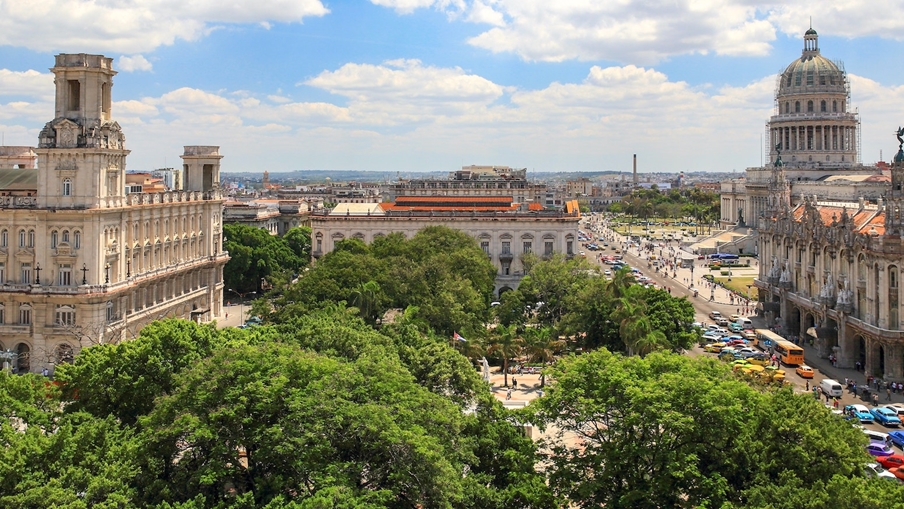The U.S. Treasury Department on Wednesday imposed sanctions on Cubametales, the state-run Cuban oil import and export company, as Washington continues to home in on Havana’s relationship with the leadership in Venezuela.
The Cuban government solidified its investment in Venezuela’s oil sector in 2000 when it struck a cooperation agreement, according to the Treasury. Through the agreement, Venezuela exports oil to Cuba, and in return, Havana provides assistance to several sectors of the Venezuelan economy, including through the provision of medical services, technology and military assistance, the Treasury said.
Cubametales and Venezuelan state-owned oil firm Petroleos de Venezuela S.A. (PdVSA) are responsible for setting the terms and conditions for PdVSA oil exports up to 53,000 barrels per day on a quarterly basis, according to the Treasury, which cited the original agreement. PdVSA was sanctioned in January and the Treasury has since further tightened restrictions on Venezuela’s oil sector.
The long-running relationship between Cuba and Venezuela’s oil sector has helped Nicolas Maduro stay in power as the country’s people suffer amid an ongoing economic, political and humanitarian crisis, according to the Treasury. The U.S. has used multiple sanctions designations in recent months in an attempt to interrupt the flow of oil from Venezuela to Cuba; Washington in January declared Maduro’s government as illegitimate.
“Treasury’s sanctions on Cubametales will disrupt Maduro’s attempts to use Venezuela’s oil as a bargaining tool to help his supporters purchase protection from Cuba and other malign foreign actors,” said Treasury Secretary Steven T. Mnuchin.
Based in Havana, Cubametales is responsible for guaranteeing all of the import and export of fuels and imports of additives and basic oils for lubricants to and from Cuba, the Treasury said. Additionally, Cubametales has been the recipient and charterer of shipments of oil from Venezuela to Cuba, and has expanded operations to include non-traditionally traded oil products such as sulfur fuel and diluted crude, according to the Treasury.
“The services and goods Cuba provides Venezuela continue to fuel the corruption of Maduro and his cronies and help maintain their influence over the Venezuelan people,” the U.S. State Department said in a statement.
Cubametales has done business with oil firms in France, Mexico, Algeria, and Russia, according to a review by Kharon. Cubametales is managed by state-run Union Cuba Petroleo, the country’s main oil company, according to Cuba’s business directory.
In addition to the designation of Cubametales, the Treasury delisted PB Tankers SpA, an Italian company sanctioned in April for operating in Venezuela’s oil sector. The Silver Point, one of the company’s vessels, had been used to deliver oil products from Venezuela to Cuba, the Treasury said at the time. PB Tankers was “shocked and concerned” when it was sanctioned, the company said in an April 15 statement, adding that it would take immediate steps to ensure its delisting.
On Wednesday, the Treasury said PB Tankers terminated its charter agreement with Cubametales and took additional steps to increase scrutiny of its operations to prevent future sanctionable activity. As a result, the Treasury removed PB Tankers, and six vessels identified as blocked property of the company, from the sanctions list.
“Treasury recognizes the actions that PB Tankers has taken to ensure that its vessels are not complicit in propping up the illegitimate former Maduro regime in Venezuela,” the department said.
Separately on Wednesday, the State Department imposed a visa ban on Uladi Basikolo Mussa, the Malawian special adviser on parliamentary affairs. He engaged in and benefited from public corruption in relation to his duties in a prior government role as Home Affairs minister, according to the State Department.
Mussa was arrested in 2017 on allegations that he took bribes in exchange for issuing Malawian passports to foreigners, according to a Voice of America report. Prosecutors presented evidence in the case against Mussa, according to an April 2019 Nyasa Times report.
The visa ban also applies to his spouse, Cecillia Mussa, the U.S. State Department said.
Analysts from the Latin America team contributed to this report.
